Hello Teachers and Directors!
I know we haven’t been formally introduced – but my name is Nate Plummer and I am Grosh Backdrops new Production Advisor! This wasn’t really the blog post we planned on starting with, BUT definitely a very much needed one. We all know the phrase “the show must go on.”
However, that doesn’t always mean rehearsals are able to go on. Most of us have heard the horror stories of productions that have lost entire tech weeks to snow or shows that have had to deal with tornadoes touching down in their community right before opening. Audiences are always – rightfully so – very impressed when those shows are able to pull it off. But what do we do now that schools and other events are being cancelled due to COVID-19? Can we still have rehearsals?
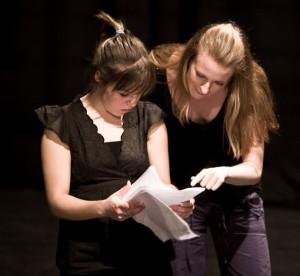
Many schools are switching to online classes. This is a great method of instruction. It’s possible to use this in our rehearsals as well. Now, I’ll admit there are many limitations to the online format for a rehearsal process. However, that doesn’t mean that you can’t use these online tools to continue your rehearsal work.
Like I said, I know you probably don’t know who I am or why I’m qualified to talk about this so let me give a brief background on me: I am a freelance director who works with high schools and community theatre groups, but I spend most of my day working as an internationally known audition coach.
I run an online studio called Stage Door Unlocked that currently works with clients in every US time zone who are working on everything from high school to Broadway stages. Over 6000 online coaching sessions to our credit now, I started doing some brainstorming as to how I would take what we do with online training at Stage Door Unlocked and apply it to a rehearsal process at a high school or community theatre.
NOTE FOR SCHOOLS: Before you use any of these video chats or group forum approaches, make sure they align with your school’s policies as some schools are being very specific about how they want online instruction happening. They may have limits on what platforms to use or if they are okay with video chats. Internet safety – especially with minors – should always be a top priority.
Okay – let’s start. Here are some ideas I came up with:
1) Virtual Music Rehearsals for Solos
These work really well. As an online audition coach, I can say these are very effective. You can set up a video chat (I recommend Zoom, but there are several platforms you could use) between your Music Director and the Soloists at their scheduled rehearsal time and then they can continue to work on the pieces.
Live accompaniment is tricky due to the delay, but with so many of the licensing companies offering rehearsal tracks for various shows now, this is a great chance to use them. Your MD could also pre-record the tracks for the singer to use and email the file to them – this also gives them something to practice with at home! You will want the audio to be played on the singer’s side of the call to help avoid the delay. They can do this on a separate device (like a phone or a tablet) and it will sound just like they are on a YouTube video.
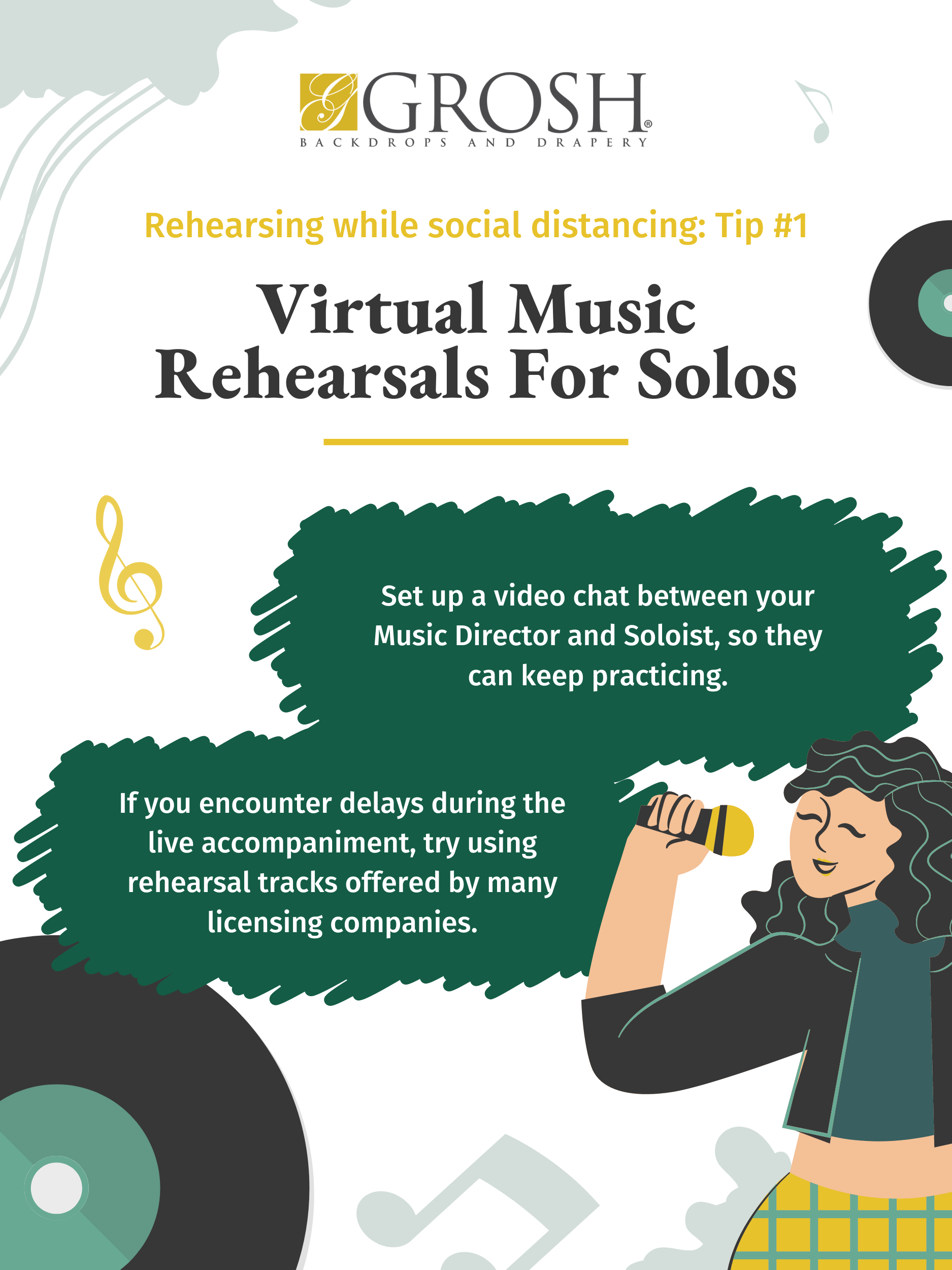
2) Virtual Table Reads
You can have your cast meet over a video chat and read through the script and discuss it. Services like Zoom or Go To Meeting offer these group type chats and are accessible on various devices.
These are great for making sure that pacing is where you want it and that you get to have those in-depth discussions about the show so that you are all on the same page.
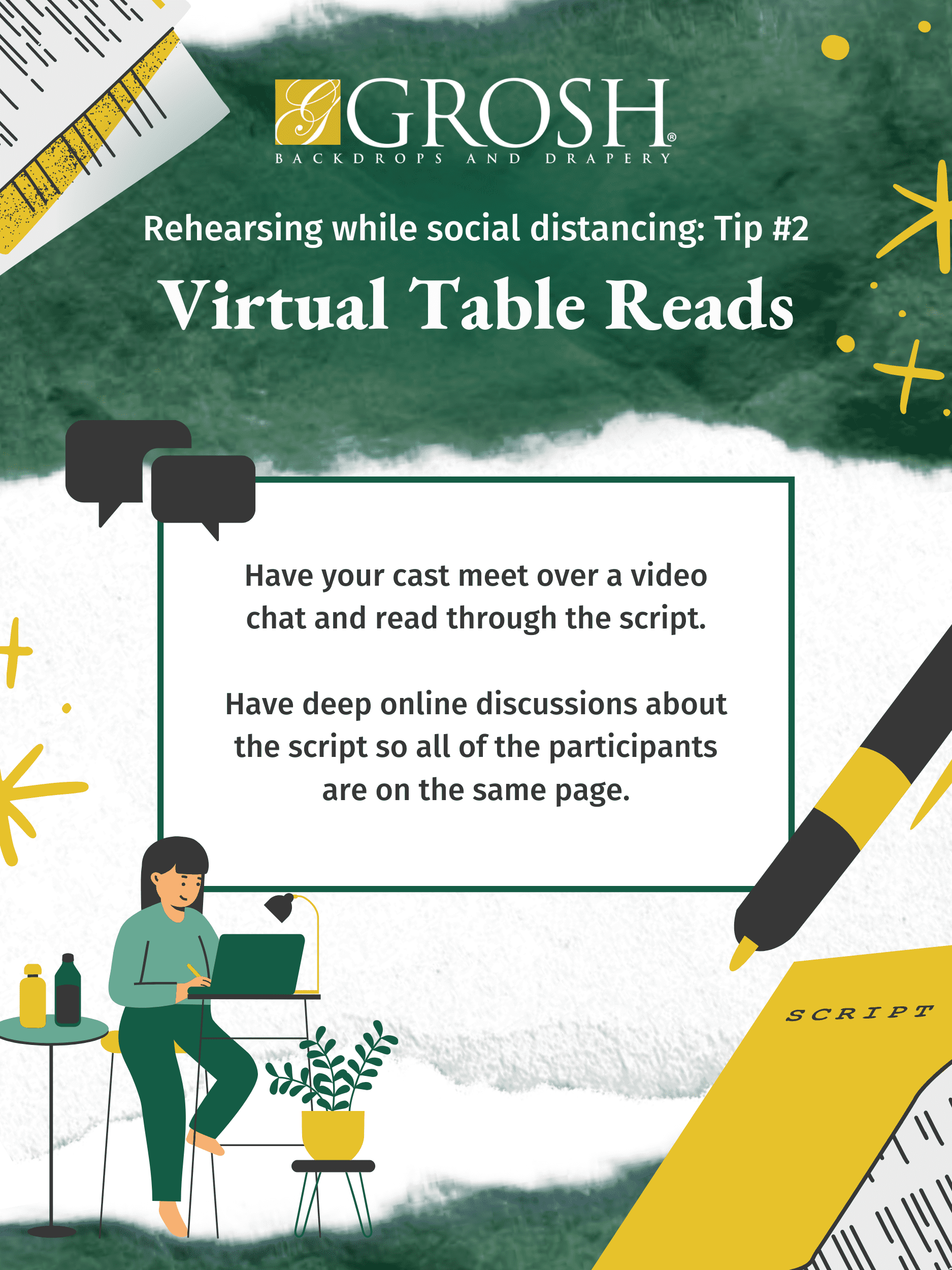
3) Virtual Italian Runs
Once you are off book, you can use the same format as the virtual table read and have everyone meet over video to speed through their lines.
(For anyone who doesn’t know, an Italian Run is when your cast sits in a circle and goes through their dialogue as fast as they can – avoiding pauses.)
This is great for helping with line pickups and checking to see if your cast really knows their lines. It definitely becomes a game and casts love it.
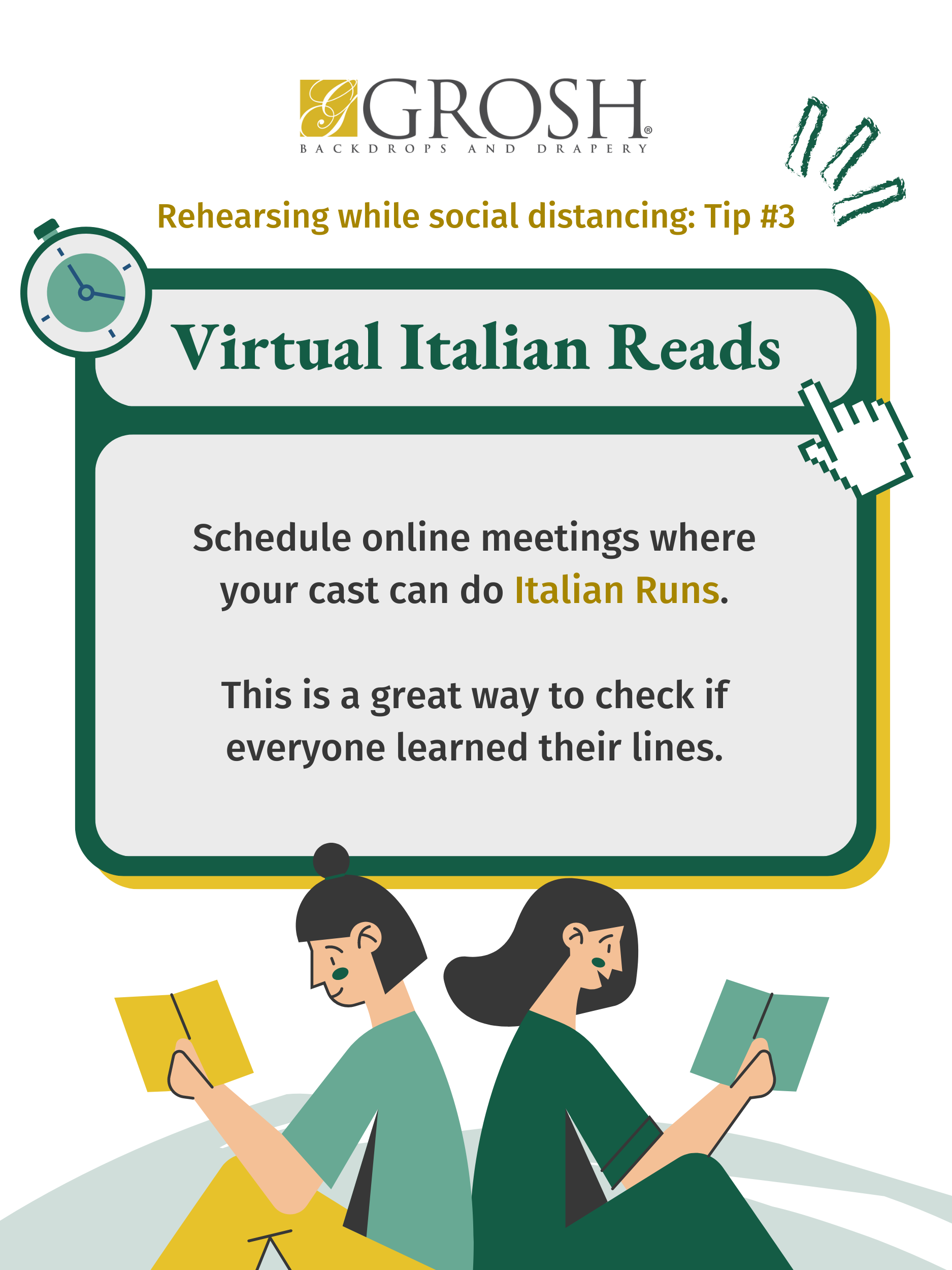
4) Group Chat Conversations About Analysis
As mentioned above, you can just meet to discuss the show.
You could have a conversation about theme, a conversation about characters, about the plot – the list is endless.

5) Have a Virtual Character Dinner Party!
This is a great way to play those character exploration games over video. Have a virtual party over video and have everyone attend the party as their character. Ask them to attend the party wearing something from their own closet that they feel their character would wear, or ask them to bring a drink their character would have (fake alcohol of course!), or even a food they think their character might eat (or not eat) at the party.
Have conversations with each other in character. Play party games like “Two Truths and a Lie” or “Would You Rather” in character. These are great ways to explore character relationships and character analysis in a fun setting.
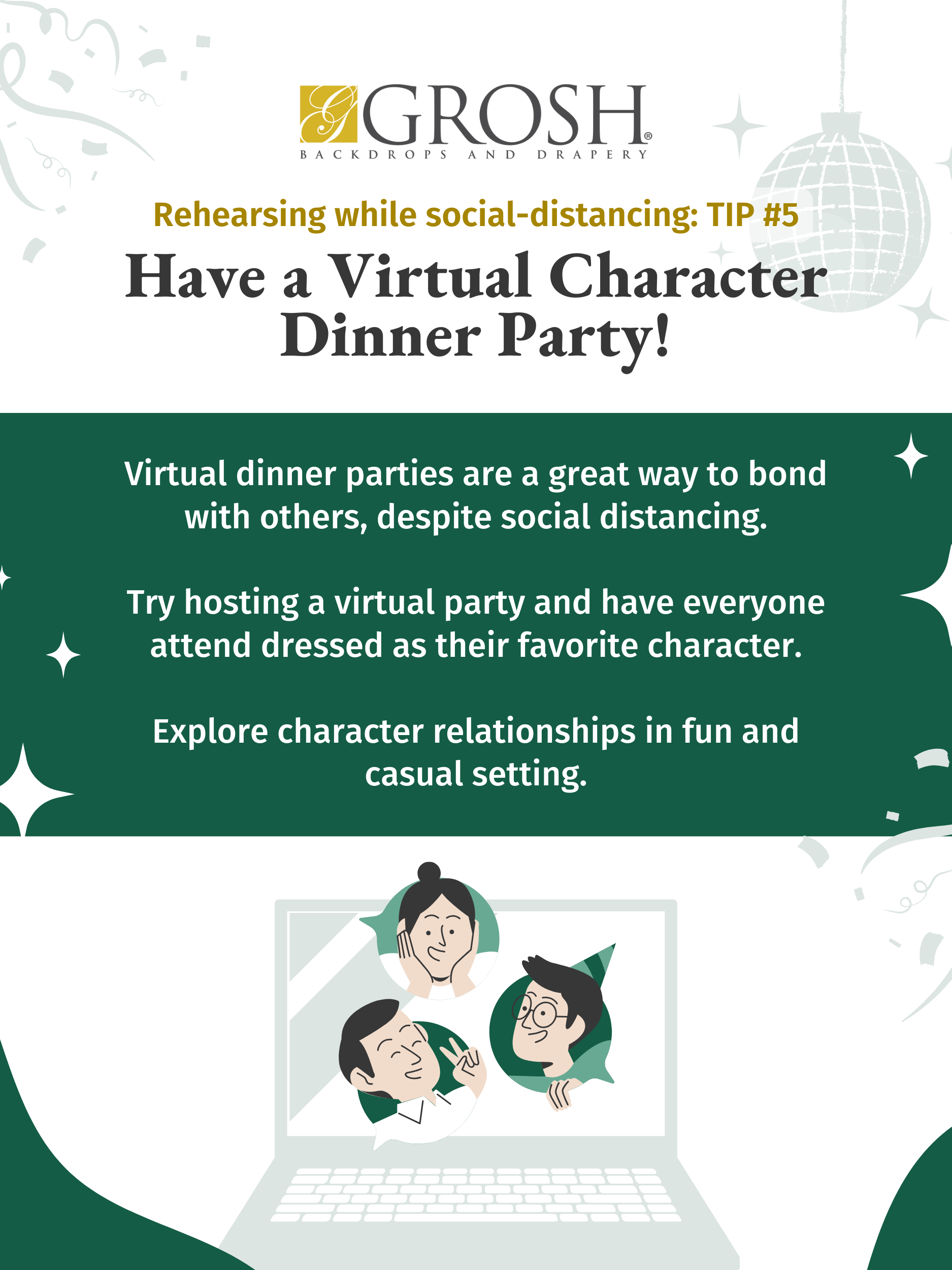
6) Record Choreography or Group Song Videos and Share with Your Cast
Videos are a great way to make sure important pieces of the show are still being taught. Your Choreographer (and maybe a couple of brave dancers) can go through the choreography in a video and break down the steps for the beginners so they can watch the video and slow it down or even rewind it and watch it over and over until they get it.
You can do the same with songs! Have your MD record themselves teaching different parts and send out those practice videos.
You can also have your choreographer and MD send out little reminder videos of areas where people might get stuck with suggestions of things to work on “Hey Tenors – remember to cut off on beat 1 in measure 79.” OR “Ladies, make sure that your hands stay in blades when you extend your arm – it’s easy to let your wrist go slack…” etc. etc.
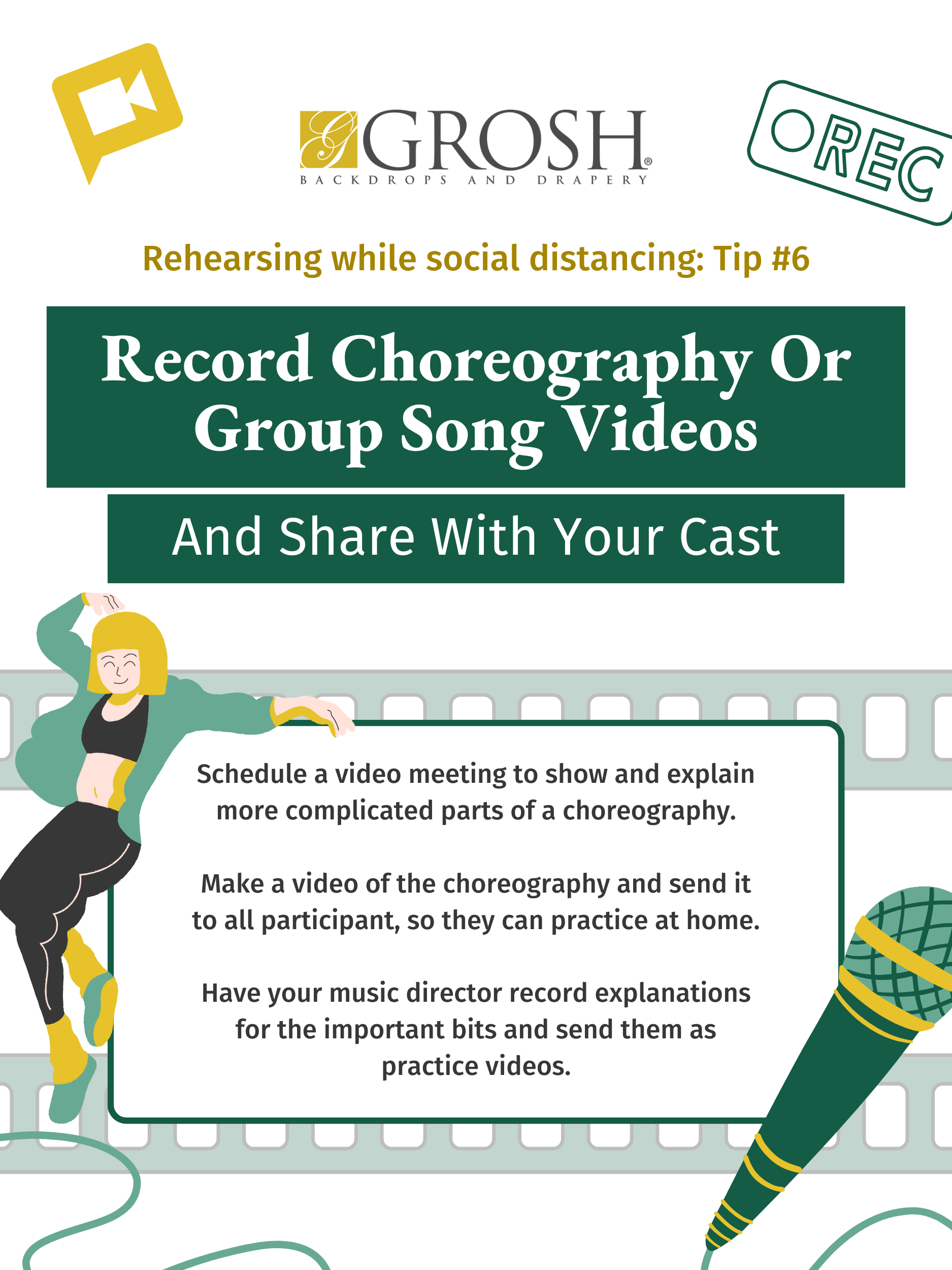
7) Virtual Scene Partners
Your cast can run lines with each other over video or on the phone!
It’s a great way to keep practicing.
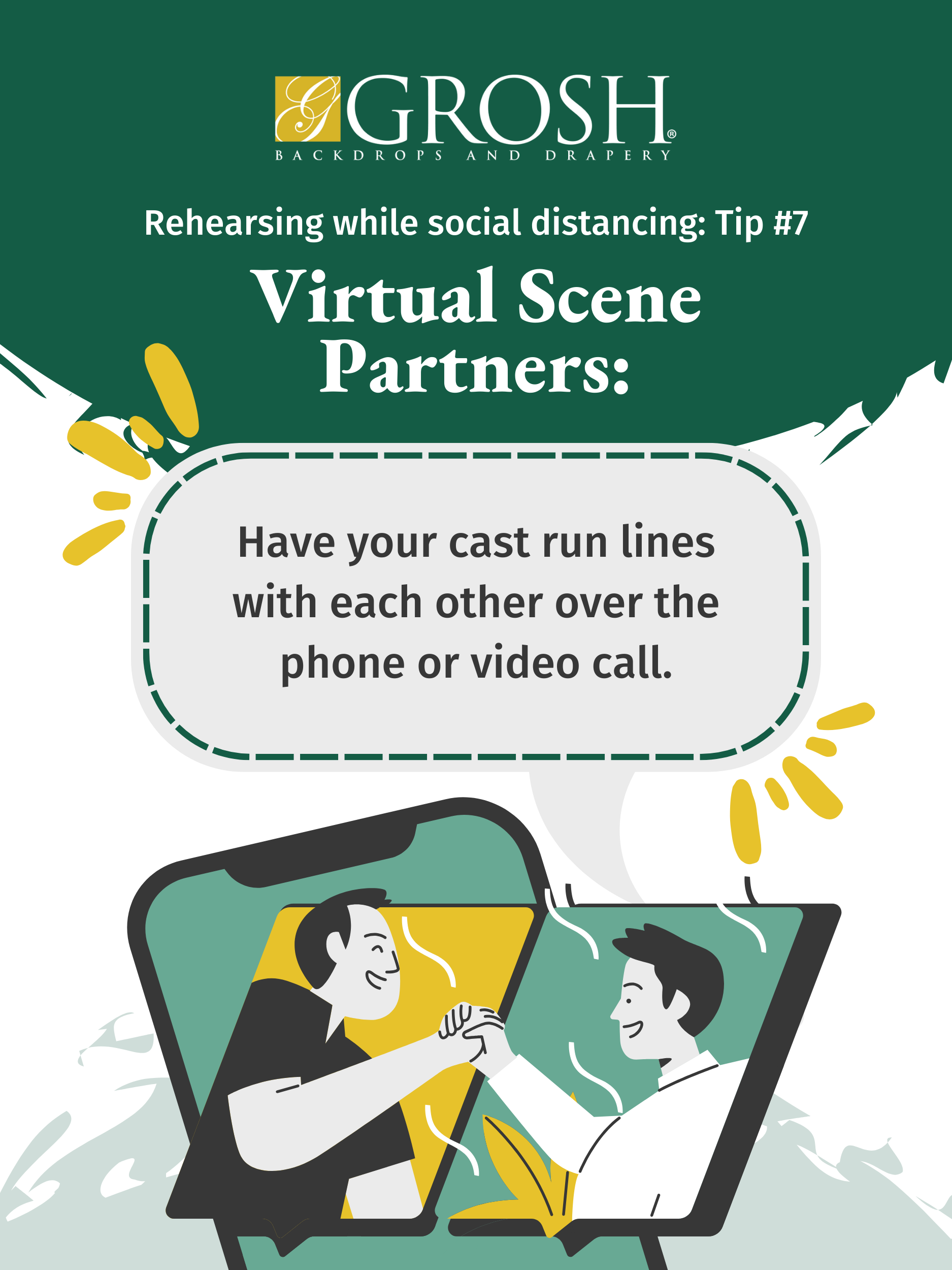
8) Projects & Challenges
You can work with actors on certain monologues or scenes over video as well. Connect with the actors and find ways of working through these moments together over video or on the phone. You can still direct, even if you aren’t in the room.
You can ask your production team if there are little things that people could make at home. Are there props or costumes that individuals could help with while they are home?
Give your cast daily challenges – questions or projects to work on to keep themselves still thinking about the show.
“What object in your house do you think your character would have?” or “Why did you pick this object?” or “What is something you did today that your character would do? Did you do it the same way?” Or even “Create a collage of images that help you understand your character. Why did you choose each image?” You get the idea.
Then they can record a video of themselves talking about their response and share them to a group chat on a forum like Facebook or Slack. Then the rest of the cast can discuss the responses as well.
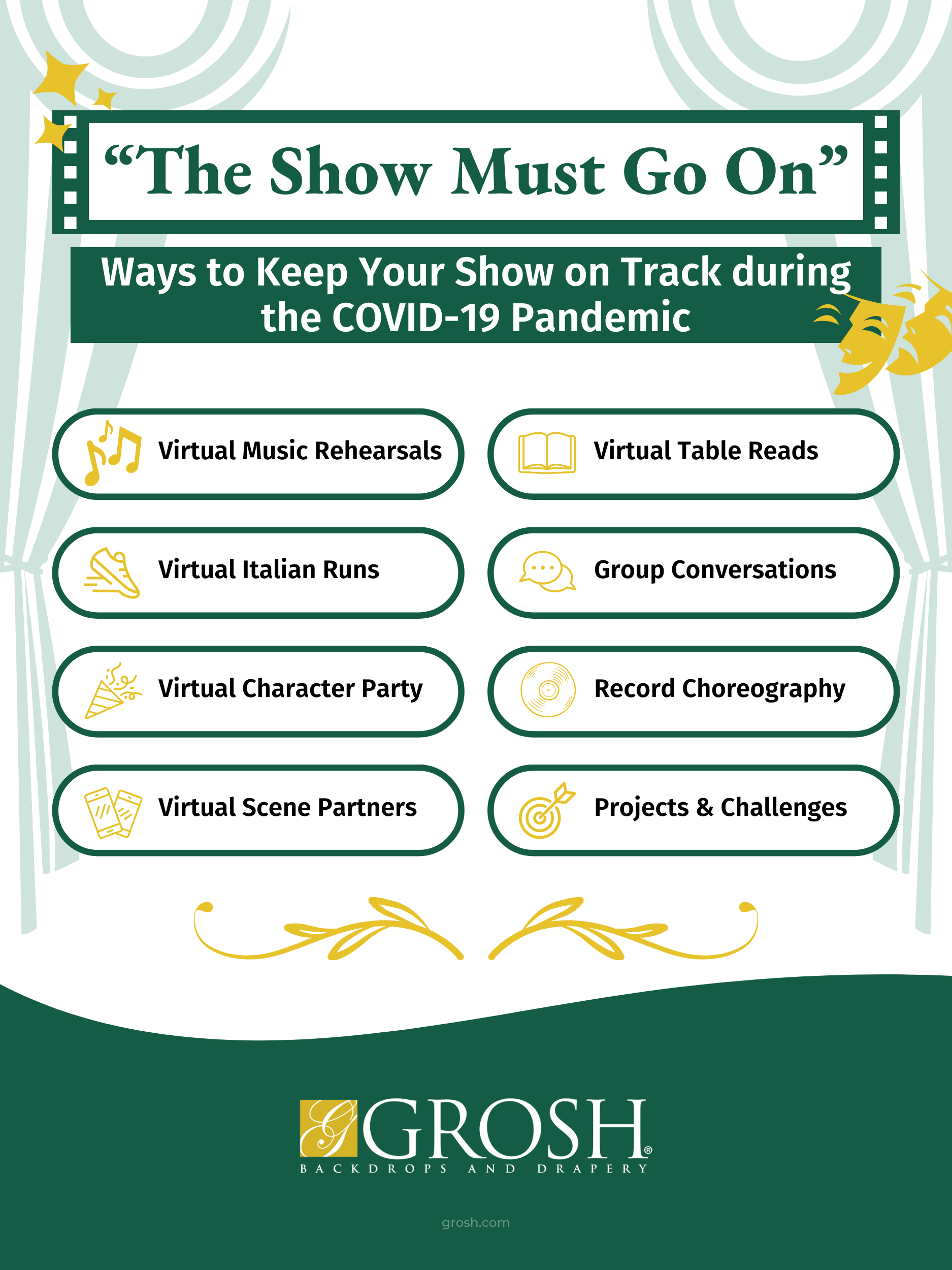
This is just the tip of the iceberg. There are SO many great ways to keep your work going even when you can’t have rehearsals in person. Many of these ideas could even be added to your regular rehearsal process in future shows when this all settles down.
As theatre people, we are strong, and we are quick on our feet. We can adapt to any situation as long as we have our imaginations, hard work, and some good old gaff tape. If we can survive tech week, we can survive COVID-19.
Best Wishes Onstage and Off,
– Nate














